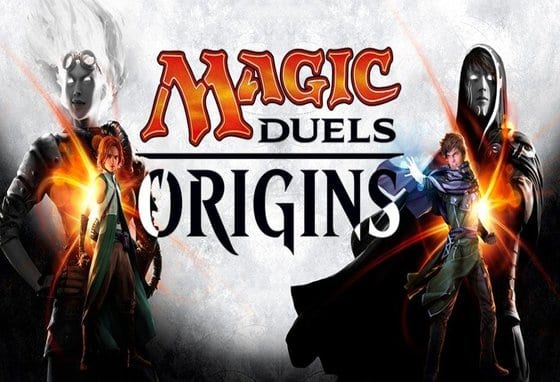
Magic the Gathering’s digital platform could use some work
Each year Wizard’s of the Coast releases Magic the Gathering digitally on a number of platforms, mobile and console, but this year it’s different. With the success that Hearthstone has had in the digital space, Magic needed to take a stand and take back some of the players that it has lost, and Magic Duels: Origins is that attempt. Despite no gameplay changes — you can’t change the core of the game — it still employs some new features that are bound to get you excited. Not so fast, because before you jump on that bandwagon there’s some things to know.

In previous releases, Magic the Gathering featured a “closed system,” meaning as you progressed in the story, you unlocked cards that you could use in pre-made decks and, in later games, in custom-made ones. This year it’s entirely different, because the game itself is free, shedding the $14.99 price that typically accompanies it. This year Magic is implementing microtransactions that allow you to purchase in-game currency, used for buying booster packs. Spending real money to potentially get some amazing cards is what draws people to the tabletop version of Magic, so the logic is that it would work the same digitally.

Well, yes and no.
One booster pack costs 150 coins, which equates to $1.99. While that is cheaper than purchasing an actual pack to play the tabletop game, it also yields less. One pack purchased digitally yields six cards: three common, two uncommon, and one rare (with a chance at a mythic rare). Granted, as you make their way through the game’s story, you’ll unlock coins and cards to help complement the decks you’re creating.

The unfortunate side of this is that for those who are trying to build a particular deck, like the ones you’ll face during the story/training, you’re going to have to get real lucky or spend some significant in-game money. It’s not as if the coins are difficult to come by, either. You can play online versus real people or against AI with varying difficulty, but it also with varying rewards (less coins for easier AI). You’ll be able to open a new pack of cards fairly often, but the odds of getting cards that increase your particular deck are slim. Instead, your best bet may be to simply have three or four different decks active to play at different times.

For years the fans of Magic the Gathering, myself included, have been clamoring for a digital version of the game that allows players to create their own deck and buy their own boosters. We finally have it, but it’s not quite buttoned up to where it needs to be. The online is fairly consistent, despite a rough launch, and there’s always going to be players available, but it’s still not ready to take down Hearthstone.

The art has always been magnificent for Magic, but the game is darker and more serious than the competition’s, which might be a negative. The UI hasn’t changed significantly in years and, where Hearthstone releases DLC packs, there’s no telling what Magic Duels: Origins has planned. They’re on the right track with this year’s installment, though. It’s certainly the Magic we know and love, and it’s just a few tweaks away from being a legitimate contender in the digital space.
Overall Score: 6.5 out of 10











